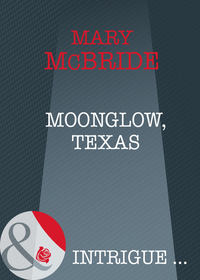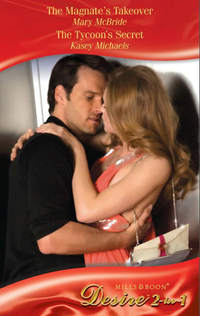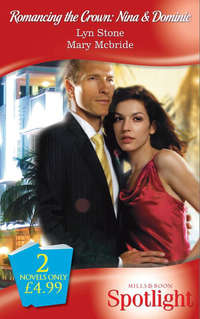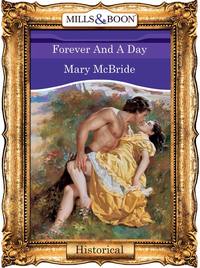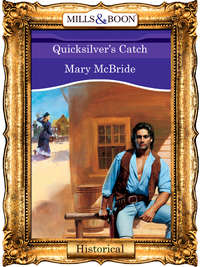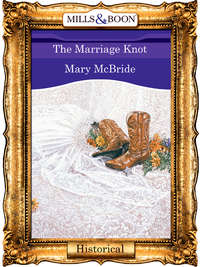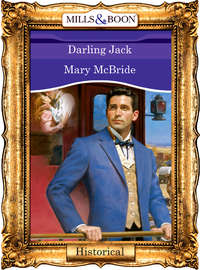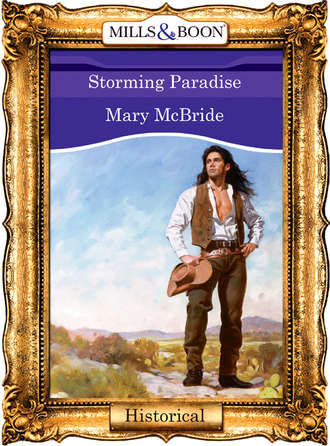
Полная версия
Storming Paradise

Table of Contents
Cover Page
Praise
Title Page
Dedication
Excerpt
Prologue
Chapter One
Chapter Two
Chapter Three
Chapter Four
Chapter Five
Chapter Six
Chapter Seven
Chapter Eight
Chapter Nine
Chapter Ten
Chapter Eleven
Chapter Twelve
Chapter Thirteen
Chapter Fourteen
Chapter Fifteen
Chapter Sixteen
Chapter Seventeen
Chapter Eighteen
Chapter Nineteen
Chapter Twenty
About the Author
Copyright
10TH ANNIVERSARY
Special thanks to our well-wishers, who have contributed their congratulations and support.
“The best historicals, the best romances. Simply the best!”
—Dallas Schulze
“Bronwyn Williams was born and raised at Harlequin Historicals. We couldn’t have asked for a better home or a more supportive family.”
—Dixie Browning and Mary Williams, w/a Bronwyn Williams
“I can’t believe it’s been ten years since Private Treaty, my first historical novel, helped launch the Harlequin Historicals line. What a thrill that was! And the beat goes on…with timeless stories about men and women in love.”
—Kathleen Eagle
“Nothing satisfies me as much as writing or reading a Harlequin Historical novel. For me, Harlequin Historicals are the ultimate escape from the problems of everyday life.”
—Ruth Ryan Langan
“As a writer and reader, I feel that the Harlequin Historicals line always celebrates a perfect blend of history and romance, adventure and passion, humor and sheer magic.”
—Theresa Michaels
“Thank you, Harlequin Historicals, for opening up a ‘window into the past’ for so many happy readers.”
—Suzanne Barclay
“As a one-time ‘slush pile’ foundling at Harlequin Historicals, I’ll be forever grateful for having been rescued and published as one of the first ‘March Madness’ authors. Harlequin Historicals has always been the place for special stories, ones that blend the magic of the past with the rare miracle of love for books that readers never forget”
—Miranda Jarrett
“A rainy evening. A cup of hot chocolate. A stack of Harlequin Historicals. Absolute bliss! Happy 10th Anniversary and continued success.”
—Cheryl Reavis
“Happy birthday, Harlequin Historicals! I’m proud to have been a part of your ten years of exciting historical romance.”
—Elaine Barbieri
“Harlequin Historical novels are charming or disarming with dashes and clashes. These past times are fast times, the gems of romances!”
—Karen Harper
Storming Paradise
Mary McBride

For Cynthia MacDonald Gamblin, my gold friend
“We were discussing your dismissal, I believe,”
Libby said.
“All right.” Shad crossed his arms over his chest. “Go ahead.”
“I want you to leave.”
“You already said that.”
Libby crossed her arms now. “Well?”
“Well what?”
“Go.” She angled her head toward the door. Once he was gone, she thought, she’d be able to breathe normally. However did he manage to suck up all the air in a room, leaving only scraps for everybody else to breathe?
But he wasn’t going. He seemed stuck to that backward chair as if he were glued to it by the seat of his pants. The pants—she couldn’t help but notice—that were pulled so taut across his thighs. She could actually see the power in those hard curves, could almost feel…Her eyes snapped back to his face, only to discover the most irritating grin she’d ever seen.
“You’ve got a lot to learn about firing, Miss Libby…”
Prologue
Dear Daughters, Amos Kingsland wrote.
And then, because he was a blunt man, never known to hold his temper or his tongue, he continued. I’m dying.
As if to underscore the words he wrote, pain shot through his belly just then. Amos closed his eyes. The doctors in Corpus Christi wanted to slice him open and poke around inside, but he’d told them to ply their lily-fingered trade on somebody else. He’d already been cut twice—once by a blind-drunk Cajun in New Orleans, and once—worse—by a woman in Matamoros who didn’t like the word adios. Any more scars, he figured, and Saint Peter wouldn’t recognize him when he knocked on the pearly gates. Or Lucifer, when he pounded on the blazing portals of perdition.
He was sixty-two years old and didn’t particularly want to die, but—damn!—when the pain grabbed at his gut, he didn’t take much pleasure in living.
Not that his pleasures had ever come easy. He’d worked hard creating Paradise—battling Mexicans and Indians and wrong-headed whites, wrestling long-horns and mustangs and Mother Earth herself until he’d built the biggest, most prosperous ranch in Texas.
He’d lost a partner along the way. Good riddance. Hoyt Backus had taken his profits in cash and had set himself up on an adjoining spread that he’d named Hellfire just for spite.
And Amos had lost a wife and two daughters, as well. He’d barely flinched fifteen years ago when Ellen had taken their two little girls to Saint Louis. Good riddance on that count, too. He hadn’t missed them. A man didn’t miss what he didn’t need.
Until now.
He picked up the pen again.
I want you to come to Texas.
Dammit! What he wanted—what he needed—was a son. If he regretted anything, it was that. After Ellen walked out, he’d considered marrying again. But he’d found matrimony to be more hellish than holy. God knows, and the devil, too, that he hadn’t done right by his wife. He was too hot tempered, too set in his ways, too hard. All the qualities that had allowed him to wrest Paradise out of a harsh land didn’t add up to good husband material. Truth to tell, Amos just didn’t like women very much.
Only now he was dying, and everything he’d worked so hard for was going to die with him because there wasn’t anybody to take over. Somebody to keep the damn rustlers from chipping away at the stock. Somebody to oversee the breeding, to see that the cattle survived parched summers and harsh winters, then made it to the railhead without losing half their lives and most of their weight. Somebody to carry on.
A son. He needed a son and all he had were two daughters he hadn’t even seen in fifteen years. Two women, fragile as their mother, no doubt, who’d spent their lives in the prim parlors and on the paved avenues of Saint Louis, who just might recognize beef on a plate in a fancy restaurant, but wouldn’t know a steer on the hoof from a damn dairy cow if their lives depended on it.
Now Amos’s life—his life’s work—depended on them. Paradise depended on them.
Please, he wrote, grimacing, galled as much by that plea as by the pain in his midsection.
But then Amos heard the soft jingle of spurs in the vestibule outside his office door. A smile hitched up one comer of his mouth as he put down the pen and called out.
“That you, Shad? Come on in.”
The heavily paneled door swung in, and Shadrach Jones stood in the doorway. Big as life, Amos thought. Barely tame. Tall and trim and tough as the land itself. A man nobody tangled with. Nobody with any sense anyway. Hell, he wished he’d had a son. A son like Shadrach Jones.
The man didn’t so much enter a room as take possession of it. His gaze encompassed it first before his body even moved. Then he eased forward, boot heels hitting the floor with a slow certainty, as if the man were branding it, making it his own somehow. The ease of his stride belied the fact that every muscle and sinew was forever primed to react. Whenever possible, he would straddle a chair, subduing it with his size and weight. Right now, he lowered his big body into one of Amos’s leather armchairs, scraped his hat off and balanced it on his knee.
Suddenly Amos became aware of a difference in the room. It seemed to grow warmer. It smelled of healthy animals, both man and beast; of sunbaked flesh, dust-caked denim and a hard day’s work. It reeked of vitality. Paradise. These days every room Amos inhabited took on the stench of a sickroom, the miasma of death. Shadrach Jones had changed all by his mere presence.
“Hand me that bottle.” Amos pointed to the whiskey on a shelf of the bookcase. He poured them each a couple fingers and proceeded to ask his foreman about the strays by Caliente Creek and the Brahma bull that had arrived from Shreveport earlier that week.
Judging from Jones’s replies, all was well at Paradise. Almost all.
“I’m sending for my daughters,” Amos said, glancing down at the sheet of vellum on his desktop.
“All right.” Shadrach Jones’s tone was low and somber, and his level gaze acknowledged the unspoken—that he knew his boss was dying. His ensuing silence said more—that the man had seen death before, many times, and accepted it. It simply was.
“I want you to see this letter gets mailed, Shad. And when they arrive in Corpus Christi, I want you to see they get to Paradise in one piece.”
Jones nodded.
Silently then, Amos studied his face. Easy enough tasks for such a man. Mail a letter. Bring two women forty miles. What about the other? Be my son, Amos longed to say.
He was a fool even to consider leaving Paradise to a man whose mother was a Comanche and whose father was anybody’s guess, to a man whose past was more shadow than sunlight. Hell, Hoyt Backus would get himself a smart lawyer and take this place away in a matter of weeks. His daughters were his legal, rock-solid heirs. No question about that. Hoyt could get all the lawyers in Texas then and Paradise would still elude him.
With a sigh, Amos drained his glass then leaned back in his chair. “Do you remember those daughters of mine, Shad?”
A sudden grin split the big man’s unshaven face. “I remember a little redhead chasing the ninth life out of a barn cat.”
Amos nodded. “That’d be Shulamith. Do you remember the other one?”
Shad resettled his hat on his knee, twisting the brim in his fingers. His grin disappeared. What he recalled was a little girl crying when her mama took her away. He’d been nineteen or twenty then, and hadn’t known squat about little girls. But leaving he knew. He remembered his heart hurting for that skinny, dark-haired child.
“No,” he told the old man. “Can’t say as I do.”
“Elizabeth,” Amos murmured. “We called her Libby.”
Shad nodded again. When he rose, the armchair creaked like saddle leather. “Well, I’ll be saying good-night now, Amos, unless there’s anything else you need.”
A son. Amos almost said it. “No. Nothing. Good night, Shad.”
Chapter One
Bill collectors! They were all overgrown, beady-eyed bullies in cheap serge suits and scuffed shoes. Shula Kingsland fully expected to see one of them right this minute, oozing out of the carriage that had just pulled up on Newstead Avenue in front of the house she shared with her sister.
Crouching behind the velvet overdrapes, Shula eased the lace sheers back a fraction. Her heart was pressing into her throat as she watched the cabbie extend a hand into the closed coach to help his passenger out.
“I’m not home,” the redhead muttered into the dark folds of the drapes. “I simply won’t answer the door. I won’t. Let him knock till his knuckles bleed. Till dooms—”
The cabbie handed a woman down from the coach. A child scrambled after her.
Shula yanked back the sheers. “Oh, for heaven’s sake.” Her relief was sweet, although brief. She wasn’t going to be forced, after all, to wheedle more time from some fool the bank had sent. But here came her sister with that ragamuffin again.
Shula stomped to the door, flinging it open just as the two of them were coming up the walk. Her bracelets jangled as she shook her fist and her rings glittered in the sunlight.
“Libby Kingsland,” she called, “if you want to be a mother so badly why don’t you marry and have babies of your own instead of dragging other people’s children home?”
The two sisters faced off in the arched oak doorway—Libby in her stiff-boned, grosgrain walking suit and Shula, still ruffled in her morning wrapper despite the fact that it was late afternoon. Both women had fire in their eyes, unlike the child who cowered now, caught between the Kingsland sisters’ silk flounces and sharp pleats.
In rough wool trousers and muddy brogans, and with her cropped blond hair, nine-year-old Amanda Rowan looked exactly like a boy. And it exasperated Shula Kingsland no end.
“Why can’t you leave him…I mean…her with the Sisters of Charity where she belongs?” Shula hissed at her sister now.
Libby’s gloved hand cupped the child’s ear as she brought her close against her hip. “Because they’re letting a certain someone out of jail today, Shula. And I’ll be damned if he’s going to hurt this little girl any more than he already has.”
“Oh.” Shula’s mouth closed with a smart little snap and her ringed fingers fluttered at the frilled throat of her gown as she dropped an almost sympathetic look on the child half-hidden in Libby’s skirt.
Gently Libby urged the little girl across the threshold and into the vestibule. “Go on up to the spare room, Andy. I’ll be up soon to get you settled.”
When the child nodded, blond hair straggled across her forehead. The sight provoked an instant cluck from Shula, whose hand whisked out to push the stray locks back.
She sighed wistfully. “Maybe while you’re here, Miss Amanda Rowan,” she said, emphasizing the feminine first name, “I’ll take my curling iron to that haystack on your pretty head.”
The child shot her a wounded look before turning to flee up the stairs. Shula winced at the sound of the big brogans thudding on each step.
“And maybe I’ll take that same curling iron to your tongue, Shulamith Kingsland.” Libby pulled the front door closed and turned the bolt. “There. Her father will have to crack through that to lay a finger on her now.”
As her older sister strode down the hallway toward the kitchen, Shula regarded the locked door. Lord, how she hated being cooped up in this dismal little house. First with her tight-lipped, stiff-boned sister, and now with a little girl who was trying with all her might to be a boy. Still, she thought, it didn’t hurt one bit that Libby was now as reluctant as she was to open the front door.
Libby! She was in the kitchen where Shula had tossed the unopened mail when she’d heard the carriage pulling up. The mail these days consisted mainly of overdue bills and disgusting letters from rude and impatient creditors, none of which she was anxious for her skinflint of a sister to see. Shula grabbed up her ruffled gown and rushed down the hall in Libby’s wake.
As she pulled the pins from her hat, Libby scowled at the stack of dishes in the dry sink, noting that it had grown considerably since she’d rushed out of the house this morning. Princess Shula, no doubt, had used a clean plate every time she passed through the kitchen. Of course, it had never occurred to her to do up any of them.
Still, fair was fair, and the dishes were Libby’s domain. They had agreed to that when they decided to use part of their small inheritance from their mother to buy and share a house. Shula, because she cared about money, would see to the bills and their investments. Libby would see to everything else, which meant she was cook, laundress, parlor maid and—judging now from the tower of dirty dishes in the dry sink—scullery maid.
Right this minute it felt closer to slavery, Libby thought as she tossed. her hat onto the table before sagging into a chair. She tugged off her gloves and tossed those, too, onto the stack of mail that Shula hadn’t bothered to open. Probably too busy taking clean plates from the cupboard and putting dirty ones in the sink.
Well, she didn’t have time to worry about Shula’s laziness right now. And she wasn’t going to let her sister’s comment about frustrated maternal instincts bother her, either. Amanda Rowan needed her help. Desperately. It was as simple as that.
A constable had brought the battered child to the Sisters of Charity on Christmas Eve, the same night they had locked John Rowan up for “doing his daughter wrong,” as the grim-faced policeman had explained. The extent of that abuse was obvious, even to the sheltered Sisters of Charity who ran the or-phanage, when they saw the bruises on young Amanda’s body. And when the child took a pair of scissors and chopped off her long blond curls; when she refused to wear anything but trousers and ungainly shirts and big, clumsy shoes; when she refused to respond to any name but Andy, it became obvious that, since being a little girl had only brought her pain, Amanda Rowan was determined to change that sad fact of her brutal, young life.
Libby, who spent time with the children at the or-phanage, had been drawn to the battered child immediately. Out of compassion, certainly. Out of her need to help and comfort the bruised waif. And, perhaps as Shula continually accused, out of some frustrated maternal inclinations. She was a woman, after all. At the age of twenty-five it was only natural that she would feel such stirrings. But since she had no intention of marrying—ever—those instincts would remain just that. Vague stirrings.
As always, the thought of marriage made Libby’s mouth crimp slightly. Her smooth brow furrowed. The very idea of marrying caused her stomach to tighten and twist into a hard little knot. She was unlike her sister, who reveled in the notion and seemed to consider marriage her very reason for being. Well, a profitable marriage, anyway.
Shula had already tried it once—unsuccessfully—by running off with the Van de Voort boy when she was eighteen. They had spent, according to the bride anyway, a grand and glorious time in Rome until young Charles Van de Voort had succumbed to a fever, leaving Shula a widow before her nineteenth birthday. She couldn’t even claim widowhood, however, because the groom’s family had had the marriage annulled, along with seeing that their former daughter-in-law was persona non grata in the finer drawing rooms in Saint Louis.
As a result, Shula was having a devil of a time trying to find a wealthy beau. And she spent the major portion of that time carping about her trials and tribulations, sighing and whining and generally making Libby’s existence miserable.
“And here you sit, Libby Kingsland,” she admonished herself now in a disgusted tone of voice, “stewing about your sister who’s twenty years old and perfectly capable of taking care of herself when you ought to be worrying about a nine-year-old who can’t and whose monster of a father means to snatch her back.”
Shula wafted into the kitchen, plopping herself down in a chair directly across the table. “And if you don’t stop talking to yourself, Libby Kingsland, people are going to start looking at you peculiarly and thinking you’re an addle-brained old maid.” The redhead gave her sister a satisfied little smile as she fussed with the ruffles at her neckline.
Libby’s nose twitched. “What’s that smell?”
“My new perfume.” Shula gave her lush auburn curls a tender pat. “It’s from Paris, France. Isn’t it heavenly?”
Heavenly? It struck Libby more as something dredged up from the gutter—wet sycamore leaves, perhaps—but she knew from long experience that an honest reply would send Shula into a royal snit for the rest of the day.
“It’s fine,” she offered. Then, seeing Shula’s mouth begin to curl down at the corners, Libby added, “It smells good.”
While Shula fashioned a smile and lifted a wrist to sniff the foul fragrance, Libby once again berated herself for even considering her baby sister’s outsized, overwrought sensibilities when she had much more pressing problems. One anyway. The brutal John Rowan was getting out of jail. Today.
“I don’t know what I’m going to do about Andy,” she murmured.
Shula made a noncommittal little noise, extending an arm casually across the table, then reaching beneath one of Libby’s gloves to extract the pile of mail. There were three envelopes, two of which she immediately recognized—another notice from the bank and another “polite but firm” note from the dressmaker. She slid them toward her and surreptitiously tucked those two into the folds of her gown, all the while studying the unfamiliar envelope postmarked Texas.
“I don’t suppose you have any suggestions,” Libby said.
“About what?” And who the devil was writing them from Texas? Shula wondered now, frowning as she slid a fingernail underneath the flap then slipped out a single sheet of vellum.
“About what!” Libby’s fist hit the table. “Haven’t you been listening to a word I’ve been saying, Shulamith Kingsland? Don’t you care one whit what happens to that poor little—”
“Oh, my Lord!”
“What?”
Her sister’s face had gone white as the cloth that covered the table except for the dabs of rouge on each of her cheeks.
“Shula,” Libby insisted, “what in the world is the matter?”
“It’s from him,” Shula breathed, still staring at the paper in her hands.
“Him?” A score of young men’s names flitted through Libby’s brain. Shula was forever mentioning this one or that one. None of them, though, struck Libby as capable of shaking the stuffing from her sister or taking the color right out of her face. “Him who?” she demanded.
In a whisper that was more breath than voice, Shula replied, “Him. Our father.”
Libby felt her own cheeks paling. “Give me that.” She grabbed at the letter, but her sister immediately clasped it to her bosom and sighed dramatically.
“He begins it Dear Daughters,”Shula said.
Libby snorted. “That’s probably because he can’t remember either of our names.” Angling back in her chair now, she crossed both arms. “Well, what else does the old goat have to say after fifteen years of utter silence?”
Shula’s lips trembled. “He says he’s dying, Libby.”
“Dying?” The older sister repeated the word as if it were incomprehensible, as if she hadn’t enough breath to clearly speak it nor enough sense to understand it. The Amos Kingsland she remembered was an enormous and vital man. He couldn’t be dying. Every muscle in her body, every ounce of her being seized tight, rejecting the notion. “I don’t believe it.”
“He wants us to come to Texas. To Paradise.”
“Paradise.” Libby’s head was swamped with images, not of angels in long, flowing robes or billowy white clouds, but of huge, dusty cowhands in leather chaps, of wild dark clouds rushing across a shadowed landscape. The music she heard suddenly wasn’t comprised of heavenly harps or choirs of angels, but rather the bawling of hundreds of cattle, the thunder of thousands of hooves. She shivered and blinked, then stared at her sister as if suddenly realizing she wasn’t alone.
Shula was smiling not so much at Libby but at the world in general. The color had returned to her face. It was flushed now, and her eyes were bright. Feverishly so. “I knew it,” she exclaimed, waving the letter aloft. “Didn’t I tell you? Well, I probably didn’t since you close your ears whenever the man’s name is mentioned. But I always knew he’d send for us.”


